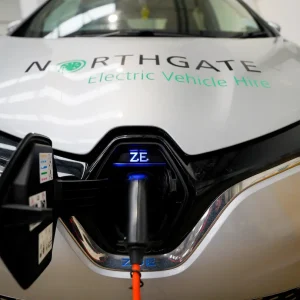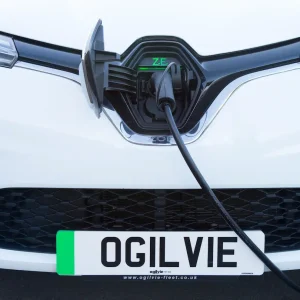Olympic chaos, economic turmoil and merging leasing companies – those are just some of the predictions that leading fleet industry figures have made for the coming year, as Jack Carfrae reports
Austerity measures galore and squeezing costs – they’re probably the topics you’ll hear fleet managers mention when talking of 2012.
It’s fair to say that the continued economic tumult automatically puts a negative spin on things and, good news though it may be on the face of it, the onset of the 2012 Olympics is certain to cause chaos on the capital’s roads and make life difficult for businesses.
There is light at the end of the tunnel, though. The experts quoted on these pages are predicting their fair share of positive news for fleets that shouldn’t be ignored. More stable fuel prices, lower rental costs and greater efficiency are some of the gems businesses can look forward to as the year progresses.
The broader trading arena remains uncertain, but it has been that way for a long time and isn’t likely to change within the next 12 months. The only iota of certainty for the moment comes from advice from these top business car professionals.
Leasing company view
Leasedrive’s commercial director, Roddy Graham, offers his view for the next 12 months:
“2012 is Olympic year. Will the UK cover itself in glory or cringe with shame? Lord Coe appears to be doing an admirable job in steering the construction and build-up but he has no control over the transport infrastructure. More’s the pity as a transport nightmare in our capital beckons this summer.
“Other factors will come into play throughout the year outside the pursuit for gold. Inevitably, the cream will rise to the top as further industry consolidation takes place and innovators capitalise on the tough times ahead by pressing home their competitive advantage.”
1. Fewer large players as industry consolidates further
“[In 2011] ING and Masterlease were acquired; the latter by us, while three [leasing companies] went into administration. Another moved out of funding to retail while the seventh failed to meet the requirement of third-party funding.”
2. Asset funding vs. asset management
“In December 2010, Ally Financial Inc. divested itself of Masterlease UK, which we successfully integrated within our business this summer. In July, another financial institution, ING divested itself of its leasing operations. As the squeeze continues on financial institutions, set against a backdrop of the Eurozone debt crisis, expect more banks to question non-core activities and consider concentrating on what they do best. At the same time, expect new entrants to the leasing market with an appetite for healthy profit.”
3. Cost restructuring
“Top of the agenda in the current tough economic climate is a renewed focus on costs. Expect every cost line to be challenged and the winners will be those who do even more with less. Past failure to invest in leading fleet systems will expose those who were content to rest on their laurels. A combination of world-class management systems, integrated solutions and top-quality people will be the winning formula for delivering added value to cost-conscious customers.”
4. Olympic transportation nightmare
“It’s hard to see London not repeating the Atlanta Olympics nightmare when it comes to transportation delays. During the month or so of the Games, an extra nine million spectators will descend on the capital. Transport for London has spent an extra £6.5bn on improvements and line extensions but accepts delays are inevitable. Businesses will be encouraged to stagger working times, deliveries and increase home working. A third of the 109-mile Olympic Route Network in London will comprise exclusive Games lanes for the 80,000 directly involved with the Olympics. Transport definitely appears a weak link and will affect the fleet industry.”
5. More salary sacrifice schemes
“With salaries frozen, salary sacrifice could become more popular for hard-pressed employees wishing to see their money go further. It’s tax-efficient, so expect more employees to show interest.”
6. Company cars vs. cars for cash
“The company car is back on the road. Driven by concerns over potential corporate as well as individual director liability, companies are favouring a return of the company car. For them, it’s a safer, greener and cheaper option than cash-for-car, and for drivers it’s a more attractive component of a total reward package. Fuelled by a combination of factors – lower CO2 emissions, higher mpg, wider model choice, tougher car policies, a sensible BIK regime, greater vehicle manufacturer incentives – the company car is back.”
7. Increase in EV take up
“With more and more new electric vehicles coming on stream, expect EVs to start making their presence quietly felt. Currently only driven by true believers, I expect more people to test them, either through city car clubs or vehicle rental companies. We might even add a couple to our own fleet, along with charging points, to gain greater insight into the driving experience and true cost of ownership. As always, the greatest drawback is the lack of a proper charging point network infrastructure. With the Department for Transport finally announcing a central database for charging points, expect a more concerted effort to not leave drivers stranded with no charge.”
8. Greater pump price stability
“As predicted last year, the price of oil has risen steadily, and is now hovering around $98 a barrel. The expectation is that a barrel of oil will cost around $113 a barrel in 12 months. Closer to home, drivers are downsizing as the cost of fuel continues to rise.”
9. Lower rental costs
“The word on the street is that one of the major rental companies has so upset its rivals that they have had enough and are determined to recover market share through aggressive pricing. The only question is how long the price war can continue before one of the major names cries wolf as profits become significantly impacted. The vehicle rental sector is notorious for its inability to collectively raise rates to more sensible levels. There is always one major rental name willing to try to grab quick market share through pricing. And in that regard they are helped by manufacturers once more turning to the sector to offload product as consumer new car purchases continue to fall.”
10. Proliferation of fleet management outsourcing
“In a tough economic climate, businesses naturally wish to focus on core activities. Non-core activities tend to get outsourced, so expect the trend to continue. I expect a steady rise in medium and large-sized organisations turning to fleet outsourcing. Specialist vehicle management companies have the right expertise and technology to make things happen while their customers concentrate on their core functions.”
Fleet operators’ association view
ACFO is convinced that demand for company cars will spiral in 2012, as increasing numbers of employees calculate that running an economical company vehicle is cheaper than a private one, so cash allowance schemes will fall out of favour.
The organisation also claims that the change in benefit-in-kind thresholds in April, particularly those at the lower end of the emissions scale, will render the cleanest vehicles on the market even more attractive to fleets, as drivers of cars emitting 115-119g/km will see a 50% tax rise.
Chairman Julie Jenner says: “Evidence suggests that with personal budgets being squeezed due to the global economic crisis, drivers are firmly focused on how much tax they are paying and their disposable income.
“Although almost every driver will see their company car tax bill rise from 6 April 2012, analysis reveals that it is significantly cheaper to pay tax on a company car than to run your own vehicle.
“A basic rate taxpayer eligible for a company car need pay no more than £50-60 a month in tax for that vehicle, and a 40% taxpayer could select, for example, a BMW 5-series, for less than £150 a month even taking account of the 2012/13 tax rises. Employees cannot run their own cars for that amount of money. Although company car benefit-in-kind tax rates will increase for 2012/13, drivers and employers alike should do their own calculations and they will realise that through the careful selection of low-emission vehicles, a company car is the financially astute choice in these austere economic times.”
ACFO is also predicting a large take-up in plug-in hybrid vehicles within the fleet sector as models such as the Vauxhall Ampera, Toyota Prius Plug-in and Volvo V60 go on sale. It believes that the poor take-up of pure electric vehicles will be counteracted by the influx of the new breed of range extenders. Jenner continues: “Pure electric vehicles may be suitable for some urban, low-mileage fleets, but for the vast majority of businesses they are not viable on a number of counts including operating costs, residual value uncertainty, range and the lack of a viable recharging infrastructure.
“However, the imminent arrival of plug-in hybrids and vehicles equipped with range extenders make the electric option a more realistic alternative for many fleets as some of the concerns, particularly around driving range and recharging, are overcome.”
Software industry view
Fleet software firm Chevin went as far as conducting a survey of 70 senior fleet managers to back up its predictions for the coming year.
The overall results predicted “reduced budgets, followed by increased running costs and a greater need to demonstrate results and efficiency savings”. Less major concerns included running and maintaining older vehicles and slashing CO2 levels.
Chevin MD Ashley Sowerby says: “The demand to do more with less has never been greater. Reduced headcounts, Budget cuts and the anticipated rise in fuel costs – accompanied with the increasing need to demonstrate and justify fleet operations to senior management or other departments – means fleet managers have their work cut out for them in the year ahead.
“But it’s not all doom and gloom. For it is in these times of economic struggle that we are forced to reassess traditional methods of managing assets and address the age-old problems that prevent fleets running at 100% efficiency. Whether it’s better utilisation of fleet vehicles, bringing traditionally outsourced processes in-house or consolidating fleet data into one centralised and intuitive fleet management system, in 2012 it’ll be all about survival of the fittest.”
Commercial vehicle view
Manheim Remarketing has warned that demand will significantly outstrip supply in the wholesale used van market in 2012 as the slump in new van sales caused by the recession in 2008 begins to make itself felt in the second-hand arena.
With added strain expected to be put on the supply stream by some large contract hire fleets cutting defleet volumes by about a third, and with operators in the south-east plundering three-to-five-year old stock to get up to speed with the expansion of the London Low Emission Zone (LEZ) to include large vans, buyers could find themselves fighting over the scraps and having to travel further afield, both physically and online, to find suitable stock.
Manheim’s commercial vehicle boss James Davis confirms: “Supply will track below demand.
“De-fleet volumes are reducing right across our network and online activity has increased significantly with the number of log-ons regularly exceeding 150 buyers
per auction. Combined with physical attendees some sales are seeing in excess of 350 buyers vying for a diminishing volume of stock. This is not likely to get any better as the impact of the near 40% fall in new registrations in 2008 begins to be felt in the market.”
While Davis says the majority of corporate fleet lease and daily rental fleets will be unaffected by the broadening of the LEZ because their vans are under 10 years old, he reckons up to 20% of operators – running 14,000 vans – are oblivious to the change and could be in for a rude awakening when their first fine comes in.
He expects the market to experience a lull in mid-2012 due to the “extended seasonality” caused by the London Olympics and the Queen’s Diamond Jubilee and suggests the drastic reduction in de-fleet numbers in the second half of 2012 could see Manheim’s van auction sales restricted to its supercentre sites in Haydock, Colchester, Gloucester and Leeds.
Continuing to gaze into his crystal ball, Davis sees 60% of Manheim vans attracting an online bid in 2012 with up to 30% actually being sold online. The figure of internet sales through Manheim’s Simulcast system in 2011 was 18% and Manheim’s MD Mike Pilkington says: “It beats cars; CV dealers have embraced technology.”
In a further response to this trend Manheim’s CV division has joined TWITTER, and in the three months to November had gathered 100 followers.
“We have to embrace it in terms of how customers want to communicate,” says Davis.





